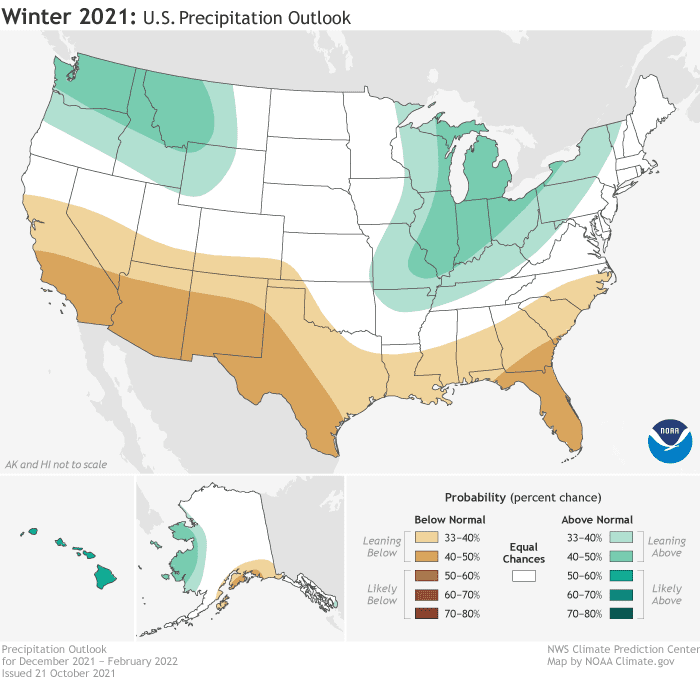The National Oceanic and Atmospheric Administration (NOAA) released its new Winter Outlook last Thursday predicting an 87 percent chance that the La Niña climate pattern will be repeated again this winter season between December 2021 and February 2022.
La Niña is associated with drier conditions in Central and Southern California, which would put Malibu into the second year of a very dry weather pattern. Most of California, but in particular the central and southern parts of the state, is favored to experience above-normal temperatures and below-average rain between December and February, NOAA wrote.
On a statewide basis, California is now experiencing its worst drought in observational records going back to the late 1800s—narrowly beating out the peak of the last drought in 2014-15 (as measured by PDSI, a metric that takes into account both precipitation and temperature).
According to a tweet by climate scientist Daniel Swain of Weather West, “There is a clear trend toward increasing aridity in California—and yet little [change] in mean precipitation. How can this be? A very strong warming trend due to climate change means the [same] amount of water falling from [the] sky just doesn’t go as far as it used to.”
He explained that a Mediterranean climate (like Malibu’s) is particularly susceptible to rapid shifts between drought and flood; for example, the rapid transition from the record multi-year drought from 2012-16 to extreme wetness from 2016-17. Swain predicted a 25 to 100 percent increase in extreme dry-to-wet events over the coming decades.
Last Monday’s rain, in which “an extremely strong atmospheric river brings a brief period of record rainfall in the midst of a severe and temperature-amplified drought—is what we expect to see in California with climate change,” Swain wrote.


